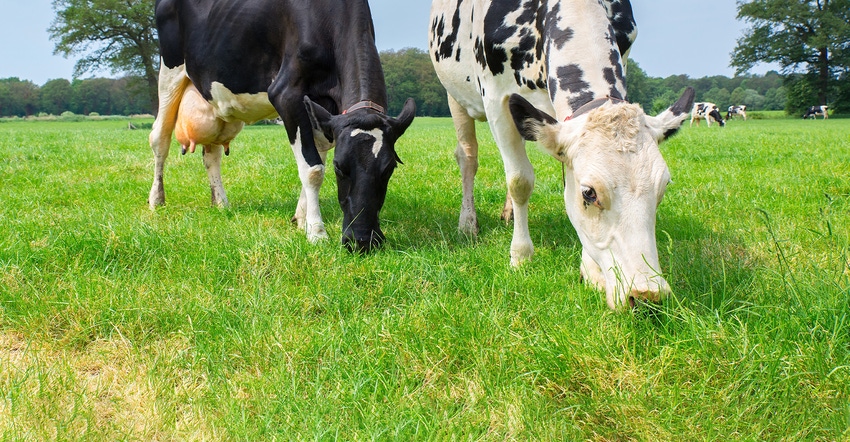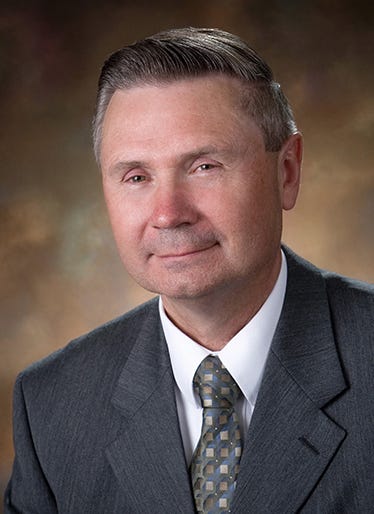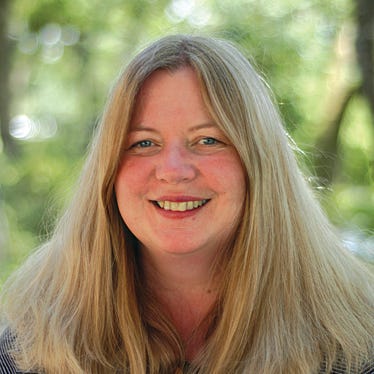
Gary Sipiorski admits it may seem odd to talk about young people getting started milking cows at a time when so many farmers are leaving the dairy business, but he says now actually may be a good time to start farming.
Sipiorski knows what it takes to make it in the dairy business. Before becoming the dairy development manager for Vita Plus in Madison, Wis., 10 years ago, he worked for 17 years as president and CEO of Citizens State Bank of Loyal. He spoke to a group of 150 people at World Dairy Expo about the opportunities that exist for young people to start dairy farming.
Where to start
Before deciding to farm, Sipiorski says people need to ask themselves a few questions:
• Do you like cows?
• What is your knowledge base?
• Did you grow up on a farm?
• Do you have relatives or neighbors who farm?
• What kind of education have you had? Did you graduate from a short course or a technical college, or did get a bachelor’s degree? Have you had any internships?
• What is your idea of a dairy farm?
A person does not have to grow up on a dairy farm to become a dairy farmer if they have the desire to milk cows and want to learn how to do it right.
Sipiorski says some young people want to get started milking on a 60-cow dairy farm with tiestalls.
“We still have a lot of cows milked in tiestalls,” he notes. “Others may want to graze cows or milk cows in a parlor or with robots.”
They may be able to start farming on a relative’s farm or a neighbor’s farm. Regardless of who owns the farm, Sipiorski advises young people to have a written plan. They should: focus on what they are doing; know their strengths and weaknesses; write down their goals; and think about how they can make the cows more comfortable.
“I’ve always said farming is like a four-legged milk stool,” Sipiorski says. Those interested in starting to farm need to be able to:
1. Care for cattle. Do you know how to make them comfortable and know when they are ill?
2. Buy or grow high-quality feed.
3. Understand the financials. Do you know how to balance a checkbook? Do you understand balance sheets and cash flows?
4. Work with family members and/or employees.
Sipiorski says it takes from 75 to 100 cows to make a living on a dairy farm today.
“What happens if you have 500 cows?” he asks. “You have to have employees. Can you work well with employees?”
 EXPERIENCE: Before becoming the dairy development manager for Vita Plus in Madison, Wis., 10 years ago, Gary Sipiorski worked for 17 years as president and CEO of Citizens State Bank of Loyal.
EXPERIENCE: Before becoming the dairy development manager for Vita Plus in Madison, Wis., 10 years ago, Gary Sipiorski worked for 17 years as president and CEO of Citizens State Bank of Loyal.

Sipiorski advises young people who start farming to rent a farm first.
“Buy the most important asset — the cows — and rent the farm,” he says. Good cows are selling for as little as $1,000 to $1,200 each currently. “Buy the cows and pay them off. Phase into farming. Buy only the equipment you need. Then start buying the farm. Buy slowly — be patient.”
Before you talk to a lender, do your homework. Develop a business plan for one year and five years. Create a balance sheet. Determine cash flow, and be realistic; figure $16 milk.
“Don’t figure your cash flow for the lender; do it for you,” Sipiorski says.
Financing
Sipiorski says that based on the 2018 Farm Bill, the Farm Service Agency offers direct loans up to $400,000 on cattle and machinery at 3.75% interest amortized over 15 years. (The interest rates do change periodically.) FSA also offers 40-year loans on real estate of up to $600,000.
“FSA also guarantees loans up to $1,750,000 where the lender has a 10% risk,” Sipiorski says. “The cash flow has to work on cattle, machinery and real estate.”
Sipiorski says young people can also start farming with their parents.
“Start a farm transfer when parents are 55 years old, because in 10 years, they will be 65,” he says.
Families need to start the process with a consultant, and then get an accountant and an attorney involved who understand agriculture, farm families and taxes.
Sipiorski recommends young people find a mentor who can offer them advice and answer their questions.
“Your mentor should be someone who understands dairy very well,” he says. ��“They could be a neighbor or friend who has a good farm.”
He also recommends young people join a group like Professional Dairy Producers of Wisconsin or Dairy Business Association and other farm organizations. He suggests completing a dairy grazing apprenticeship, attending Extension meetings, and getting education beyond high school and other formal education.
“You used to be able to take care of your cows and your crops and you were successful at farming,” he says. “Margins are too thin right now. You now must know how to manage your financials as well as keep working hard. Get to know your accountant, vet and nutritionist — follow them around and ask questions.”
Sipiorski also cautions that people have to work with a milk plant that will take their milk.
“I think now and into the future, we’ll see more milk plants sign production contracts with farmers,” he says. “And make sure you are sending high-quality and high-component milk.”
About the Author(s)
You May Also Like






